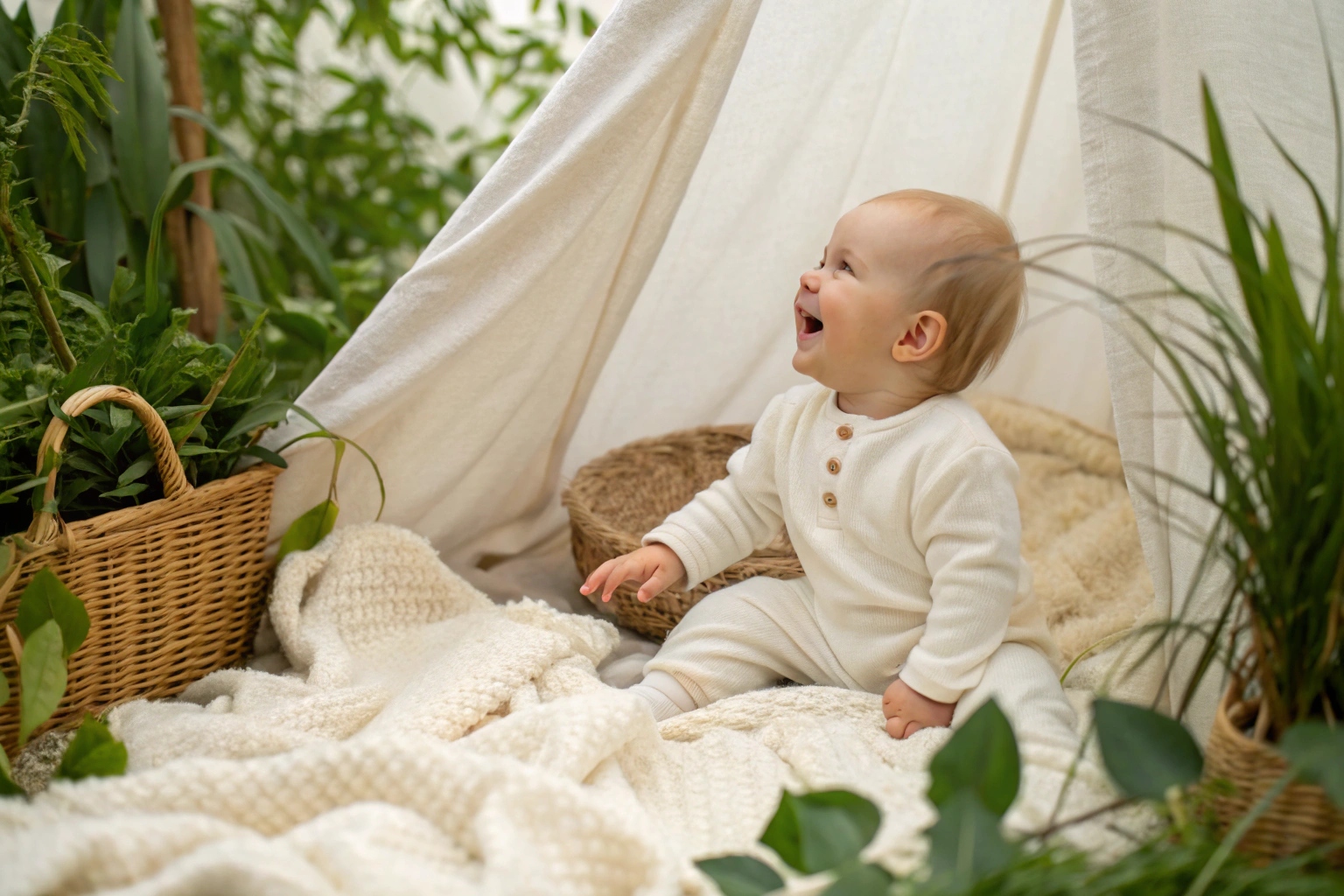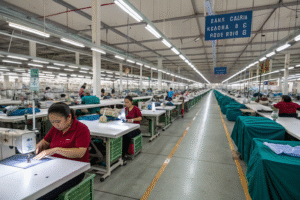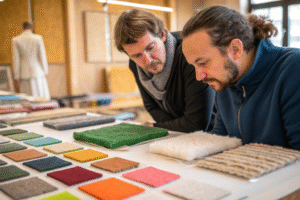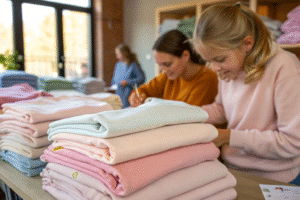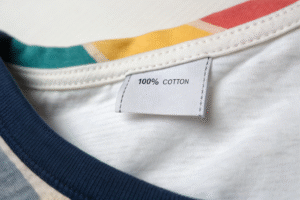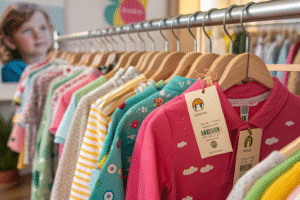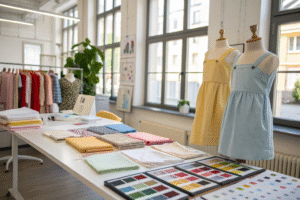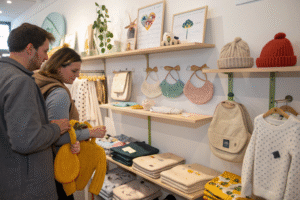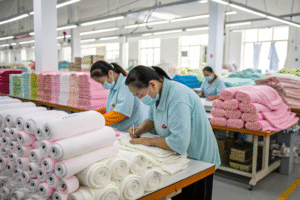Organic cotton is often marketed as the best fabric for infants and children. But is it truly safer, or just a buzzword?
Yes, organic cotton is safe for babies and kids. It’s grown without harmful chemicals and processed without toxic dyes or finishes, making it gentle on sensitive skin.
Let’s explore what makes organic cotton different, how it compares to other fabrics, and whether it’s worth the cost for your little one.
Which Cotton Is Good for Babies?
Parents want the softest, safest materials next to their child’s skin. But not all cotton is created equal.
The best cotton for babies is 100% organic cotton. It is soft, breathable, and grown without synthetic pesticides, making it ideal for newborns and kids with sensitive skin.
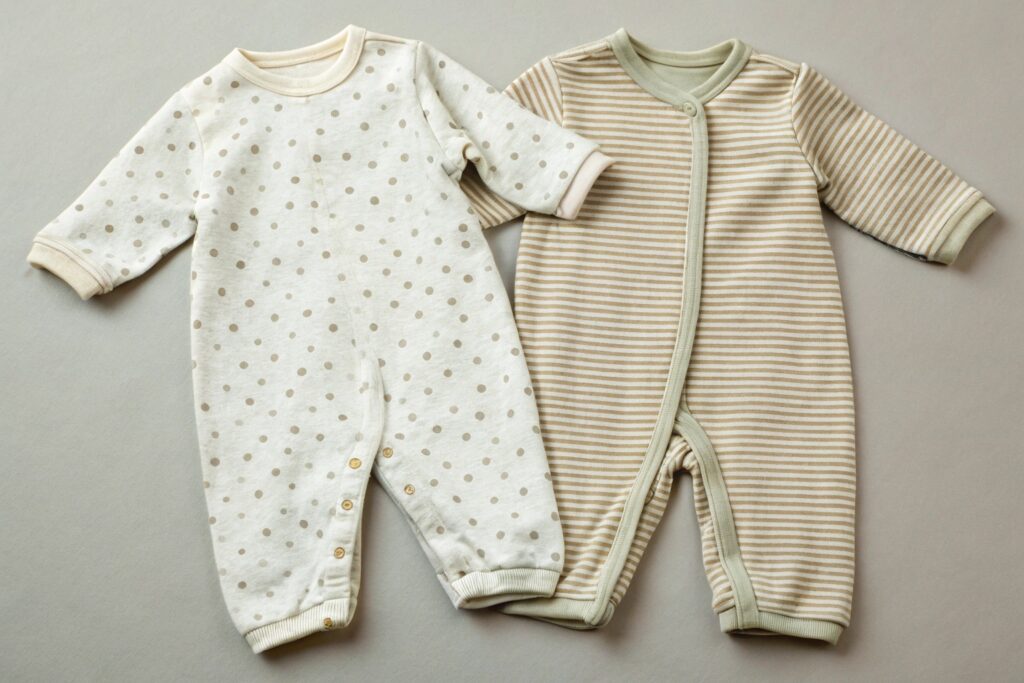
Comparing cotton types for babywear:
| Cotton Type | Safe for Babies? | Key Features |
|---|---|---|
| Organic Cotton | ✅ Yes | Chemical-free, hypoallergenic |
| Conventional Cotton | ⚠️ Caution | May contain pesticide residues |
| Combed Cotton | ✅ Yes | Softer fibers, fewer impurities |
| Pima / Supima Cotton | ✅ Yes | Luxuriously soft, long fibers |
Why organic cotton stands out:
- No pesticides or herbicides
- No formaldehyde in finishing
- No toxic dyes or bleach
- Breathable and naturally soft
At Fumao, we offer certified organic cotton options in babywear manufacturing for brands that prioritize eco-friendly and baby-safe textiles.
What Is the Safest Fabric for Babies?
With so many fabric types available—cotton, bamboo, polyester, blends—what’s best for your baby?
The safest fabrics for babies are those that are soft, breathable, and free from harsh chemicals. Organic cotton, bamboo viscose, and certified modal fabrics rank highest for comfort and safety.
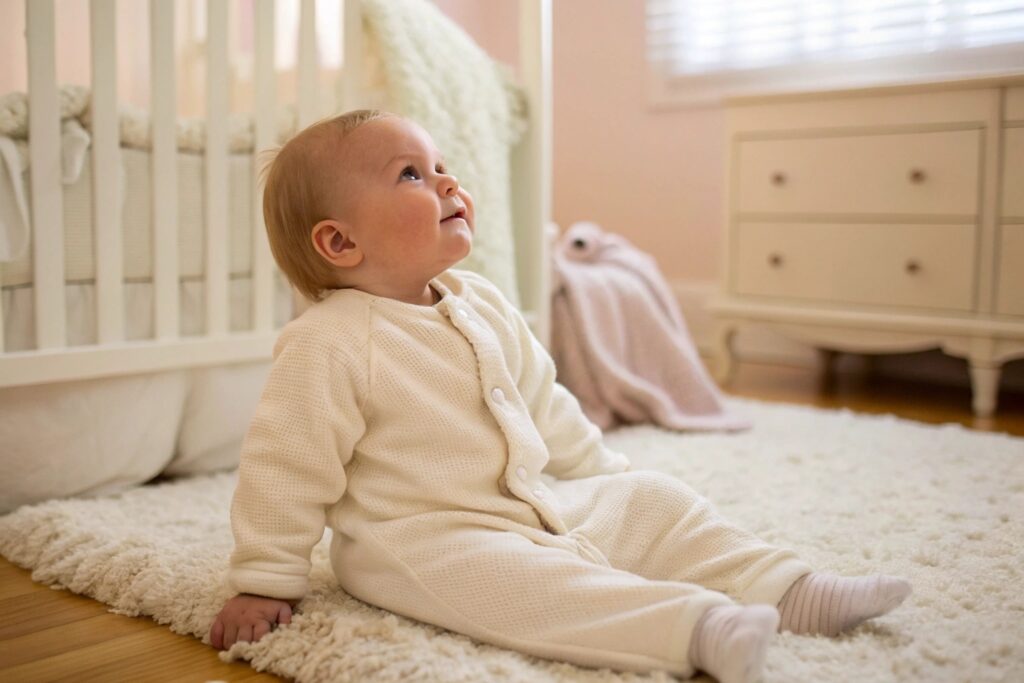
Safest fabrics for infant clothing:
| Fabric Type | Baby-Safe? | Features |
|---|---|---|
| Organic Cotton | ✅ Yes | Hypoallergenic, toxin-free |
| Bamboo Viscose | ✅ Yes | Ultra-soft, antibacterial |
| Modal (certified) | ✅ Yes | Smooth, breathable |
| Conventional Cotton | ⚠️ Maybe | Safe if untreated |
| Polyester | ❌ No | Traps heat, may irritate skin |
Why fabric safety matters:
- Babies have thinner, more absorbent skin
- Chemical residues can cause rashes or allergies
- Breathable fabrics reduce heat rash or eczema flare-ups
Parents should also avoid fabrics with:
- Flame-retardant chemicals
- Heavy synthetic blends
- Fragrance-infused treatments
Is Organic Cotton Safe?
Many people hear “organic” and think of food. But does that label guarantee safety for clothes?
Yes, organic cotton is safe. It’s free from synthetic pesticides, bleach, and heavy metals used in conventional cotton processing. Certified organic cotton is also safer for workers and the environment.
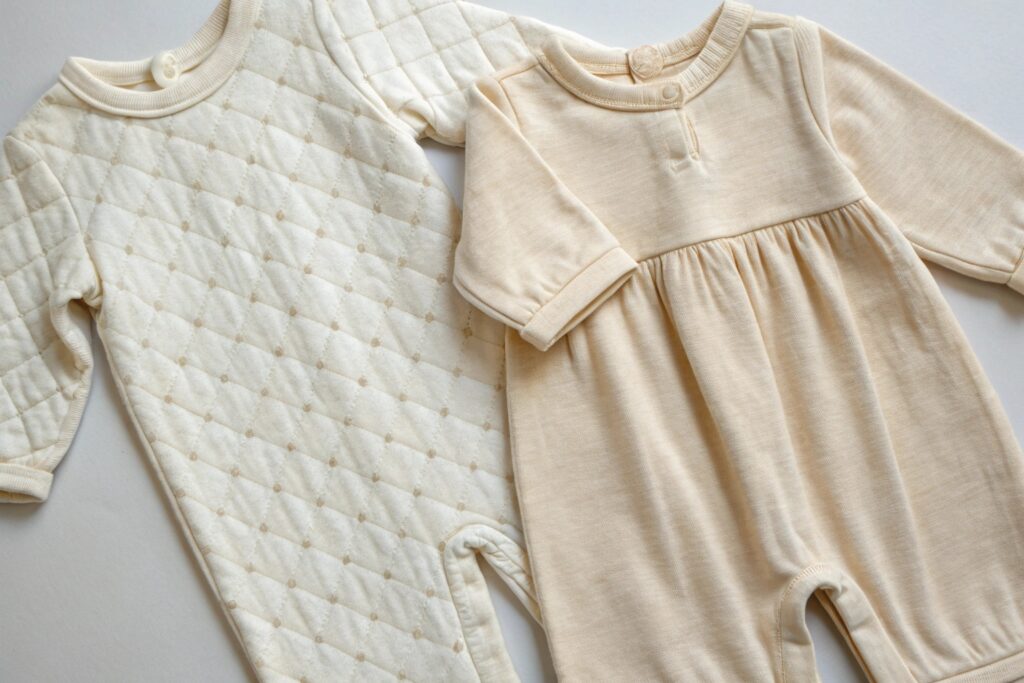
What makes organic cotton safe:
| Feature | Benefit |
|---|---|
| No chemical residue | Safer for sensitive baby skin |
| Natural dyes | Less chance of skin reactions |
| Breathable fiber | Prevents overheating and rashes |
| GOTS certification | Verifies entire supply chain safety |
Safety is more than just the fabric:
Look for GOTS-certified garments to ensure:
- Organic fiber use
- No harmful substances
- Ethical labor practices
- Full transparency
At Fumao, we manufacture GOTS-certified baby garments for brands that want full peace of mind—for parents and the planet.
Is Organic Baby Clothing Worth the Cost?
Organic baby clothing often costs more. But is it worth paying extra for something your child may outgrow in a few months?
Yes, organic baby clothing is worth the cost for parents who value safety, softness, and sustainability. While more expensive, it offers peace of mind and reduced risk of irritation or allergic reaction.
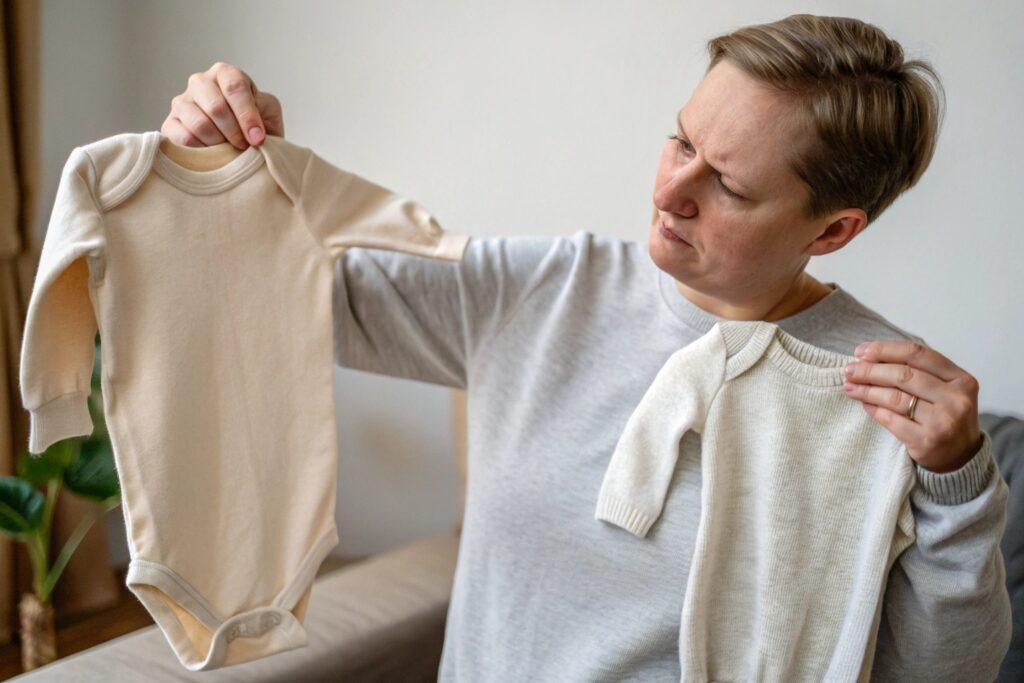
Why the higher price?
| Reason | Impact |
|---|---|
| Organic farming | More labor-intensive, pesticide-free |
| Certification process | Costly audits and inspections |
| Ethical manufacturing | Fair wages, better conditions |
| Low chemical use | Safer but slower production |
What you’re paying for:
- Safer clothing for sensitive skin
- Higher quality fabrics
- Lower environmental footprint
- Support for ethical labor
Tips to make it affordable:
- Buy multi-packs or bundles
- Choose neutral colors for hand-me-downs
- Focus on essentials like bodysuits, pajamas, and bibs
For our clients at Fumao, we help brands balance premium materials with accessible pricing through smart MOQ planning and efficient production systems.
Conclusion
Yes, organic cotton is safe—and in many cases, the best choice—for babies and kids. It’s soft, chemical-free, and breathable, making it ideal for delicate skin. While it may cost more, the safety, comfort, and peace of mind it brings are worth every penny.

